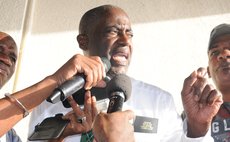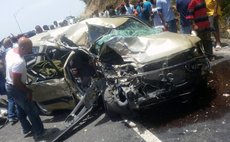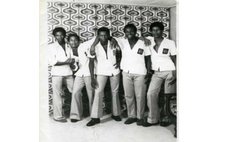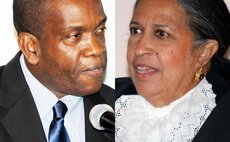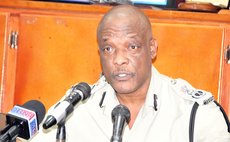The 1976 Salisbury Declaration to the 2015 Uprisings
During the first half of the 20th century, Salisbury (Bawi) was just a west coast hamlet with thatched-roof huts. During the 1950s and 1960s, however, the banana industry began to utilize the village as a port where bananas could be transferred from feeder roads in its interior to banana boats exporting the nation's produce. In recent years, the community which was heavily dependent on agriculture has grown tremendously and remains a significant contributor towards agricultural development on the island.
On August 29, 1976 in Salisbury, Premier Patrick John of the Labour Party signed the Salisbury Declaration. This document cited the intentions of the island colony of Britain to become a political independent state. The Order would take effect on November 3, 1978 and Dominica became a sovereign state. But the question that lingers is; did political independence of Dominica produce economic independence?
One of the fundamental ideals behind the creation of sovereign nation states is the right of a people to self-determination by being in charge of their destiny politically and economically. But in the case of the Salisbury people, what does that mean and has the current government diverge from this paradigm? Economic independence is achieved when the nation allows everyone to fully participate in the growth of the economy. Has that happened in Salisbury? Or would the Skerrit Labour government prefer the Bawi people to be patrons of the Red clinic and beholding to it? If so, how much does the Red clinic contribute to the economic growth and development of Dominica and the patrons' sense of self-esteem, dignity and destiny?
The farmers of the UWP stronghold of Salisbury aspire to earning their respect and dignity from their farms and not from government's Red Clinic hand-outs. According to Salisbury's MP Hector John, "For 15 years Salisbury has been victimized and neglected by the Labour government and residents cannot take it anymore. Farmers cannot access their farms and the road in the community itself is in a terrible state. Further, with the demise of the banana industry in Dominica and the neglect of agriculture by the ruling Dominica Labour Party, scores of farmers have abandoned their lands and the village has spiraled into poverty'.
In contrast, in October 2013, PM Skerrit told residents of the southern Labour Party strong hold of Petite Savanne that money will not be a problem to address the road conditions in their community. He said, "The people have done nothing to the government to allow the roads to be in that terrible condition and money will not be a problem to address the road conditions. MP John shot back, "What have the people of Salisbury done to government to allow their roads to suffer such degradation? It is very interesting that he (Skerrit) made that comment in the south. We want to ask him what has Morne Rachette and Salisbury done and I have raised this issue in parliament. Why is money a problem to affect a proper road in a community (Salisbury) that has been very productive in terms of producing quality food to feed the people and export?"
The anger and frustration of the Salisbury people culminated on May 11, 2015 in the predawn hours. Villagers blocked the major west coast highway linking the second town of Portsmouth and points north with the country's capital Roseau with old vehicles and debris. Protest leader MP John, told the media that "Protesters say they will continue the protest action until word is heard from the authorities and no amount of provocation will prevent us from standing up because we been victimized but will not roll over".
Skerrit and Police Chief Daniel Carbon deployed a contingent of heavily armed Police officers to Bawi dressed in military uniforms and riot gear carrying loaded M-16 rifles and other military assets. It was widely reported that the police used expired tear gas on the unarmed protestors and fired live rounds near some homes and in the air. Were the command and control in Salisbury conducted independently by the commanders on the scene or were instructions texted or telephoned to them by the political directorate?
Protest leaders said that the roadblocks were to draw attention to the complete neglect by government of their once prosperous farming community. The protest was taken down by the police and five people were arrested. After the calm, the government issued warnings stating that appropriate action would be taken against those who either participated in or organized the protest. On June 11, the arresting of six more villagers almost ignited a second round of confrontation between the police and residents.
Soon after steering down the barrels of police rifles and inhaling tear gas, the exhausted but relieved Salisbury MP flew to New York City where he joined hundreds of patriotic Dominicans in front of the UN protesting the questionable actions of the Skerrit government. It is clear that Bawi has spoken loud and clear and its cries and anguish have been heard far and wide
Are the uprisings, political polarization, governance dynamics and leadership issues were the objectives of the Salisbury Declaration in 1976? Is the Salisbury Declaration a dream deferred for the Salisbury people and how and why did we get there? Some observers contend that if there is a round 3 in Salisbury resulting in lose of lives, limbs and property, it may well be the beginning of Skerrit's and Carbon's waterloo. .
